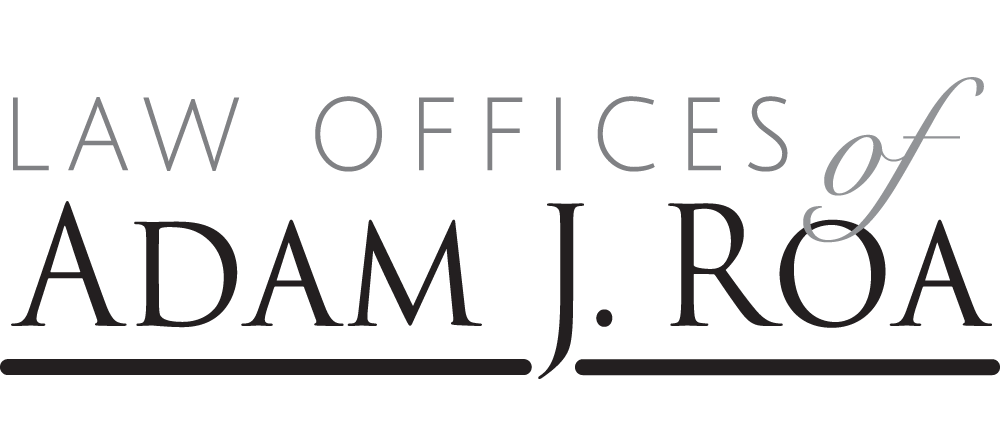
Estate Planning
1. What is estate planning?
At its core, estate planning involves planning for the future. Individual circumstances vary, but most people benefit from having the following documents in place:
- Advance directive (to help with health care decisions)
- Last will and testament
- Revocable trust (to address probate and confidentiality concerns)
- Durable power of attorney (to address financial control issues)
Depending on one’s circumstances, estate planning may involve much more than the documents listed above. But, at its core, an estate plan will involve those four documents.
2. What is a last will and testament?
A last will and testament effectively distributes property to your intended beneficiaries. However, a will involves more than the distribution of property—it is also the appropriate forum to designate burial arrangement preferences. You may also provide unique distribution rules. If minors are in your care, a will is a critical avenue for you to decide who will take care of them when you pass. You can also include limitations on the personal representative’s powers or perhaps specific instructions to the personal representative. Wills are highly customizable. Your will should be tailored to your specific needs.
3. What is a trust?

A trust is a separate legal entity with its own unique set of instructions for asset management and use, involving a trustee (or trustees) who is bound to follow this set of instructions.
Trusts are very useful in situations where one wants a loved one to receive the benefit of property passed on death. However, when that person no longer needs the funds (i.e., death or remarriage), the property then reverts to other intended beneficiaries.
The classic example of a marital trust is where a husband and wife are in their second marriages, each with a set of their own children. Each spouse can set up a marital trust to care for the surviving spouse while alive, but which reverts back to their own natural children upon the remarriage or death of the surviving spouse. This makes sure that the assets do not go to the surviving spouse’s children instead of the decedent’s children. Trusts are also used in advanced planning if one’s estate is expected to have Federal or Maryland estate tax liability. Trusts may also be used in the context of elderly parents where funds may be preserved and protected against nursing home expenses.
4. What is a power of attorney?
A power of attorney is the generic term usually meaning durable general power of attorney for financial matters. In Maryland, powers of attorney are assumed to be durable. This means that if the grantor later becomes “disabled,” the power of attorney is still valid.
One has to be very careful when drafting a durable general power of attorney. This document can be very powerful. Additionally, the powers granted to the “attorney in fact” should be clearly granted in the durable general power of attorney document; otherwise, you risk having the power of attorney dishonored.
Currently in Maryland, financial institutions cannot be forced to honor a durable general power of attorney. There are various forms of powers of attorney. A power of attorney can be a complex document granting a very wide range of powers, or it may be a limited power of attorney with powers granted over one asset or one account.
Additionally, a power of attorney may be effective when it is signed, or it may be a “springing power of attorney,” which becomes effective upon certain occurrences. The typical case where a springing power of attorney becomes effective is the certification by two physicians of the grantor’s disability.
5. What is an advance directive?

An advance directive in Maryland contains two separate forms: 1) the living will and 2) the health care agent designation.
The living will provides instructions for end of life decisions, and a Maryland living will should address three Maryland-specific conditions: 1) terminal condition, 2) persistent vegetative state, and 3) end-stage condition.
Maryland is very conservative, in that if one does not have a living will and one’s end of life intentions are unknown, if they fall within one of the three Maryland conditions and they cannot physically bring food or water to their mouth, Maryland deems it to be in their “best interest” to be tube-fed indefinitely until their body gives out. If your preference is not to be tube fed, then your intentions needs to be clear and known.
The second part of the advance directive is the health care agent designation. This is the person that can access your medical information, hire a doctor, fire a doctor, gain access to your medical records, etc. This person acts as an agent for your benefit. Included in the agent designation must be the HIPAA release authorization. This makes it possible for your agent to receive and review private medical information about you. A properly drafted advance directive should cover all of your unique health care needs.
6. What is litigation?
Litigation in the context of estate planning documents ranges significantly. For disputes for durable general powers of attorney, the issue normally is that the attorney-in-fact is abusing her role as attorney in fact, breaching her fiduciary duty to the grantor, and, in some cases, stealing the grantor’s assets or making unauthorized beneficiary changes.
Challenges to an advance directive may range from disagreement over what the agent may or may not do, having the hospital honor the agent’s instructions, or having the hospital or nursing home honor the end of life decisions in the advance directive. Challenges to a last will and testament are called “caveats,” and they range from the accusation that the signature is false (i.e., fraud) or that the signature is not valid (undue influence and competency) to the issue that the document was improperly executed. The beginning point for a challenge to a will is whether the was caveat filed in a timely fashion. If not, your case is over before it began.
7. When should I leave my spouse as the primary beneficiary?
If your spouse is in declining health, it is probably wise not to leave him or her as the primary beneficiary of your estate. If the well spouse unexpectedly passes first, an inheritance could inadvertently go to a spouse in a nursing home, causing Medicaid benefits to cease and loss of some or all of the inheritance to nursing home expenses. In such a case, a supplemental needs trust—for the benefit of the surviving spouse—should be named as the primary beneficiary. This area of law is complex. Please call our office for more details.
8. Why should I have an elder law attorney review an existing power of attorney and advance directive?
It is critical that an elder law attorney review the power of attorney and advance directive. It is very common to have a power of attorney that a family thinks is fine until they have to use it. That is not the ideal time to discover that it is defective. Similar issues exist with an advance directive. In the middle of a family health crisis situation is not the ideal time to discover that the advance directive is defective. This office routinely examines powers of attorney and advance directives as a normal part of our consultations.
9. Does your advance directive contain the HIPAA release authority?
The Health Insurance Portability and Accountability Act imposes strict monetary and criminal penalties on companies and institutions that release private information to unauthorized individuals. The result is that family members are unintentionally being keep out of the loop by hospitals, insurance companies, assisted living, and nursing homes. The answer is that your advance directive must absolutely contain the HIPAA release language allowing individuals to access medical information in the event you are incapacitated.
10. Why would I need a revocable living trust?
A revocable living trust is designed to do two things: 1) avoid probate and 2) make sure your beneficiary designations are a private matter and not a matter of public record. Probate is a time- and paper-intensive process. The typical time for an estate to be probated is 9 months to 2 years. The revocable living trust eliminates probate and insures your beneficiaries receive their distributions in a more timely manner.
11. What is an Irrevocable Life Insurance Trust (“ILIT”)?
A common misconception is that proceeds from a life insurance policy are tax-free. It is true that the proceeds are free from Federal and State income tax for the beneficiaries of the policy. However, the proceeds of the life insurance policy may be subject to Federal and State estate tax. Life insurance is like a stealth asset that, without proper planning, you may not realize the extent of your exposure until it is too late. So instead of passing your life insurance inheritance “tax-free” to your beneficiaries, you may unexpectedly find Uncle Sam’s hand dipping in to grab just about fifty percent of your life insurance legacy. An Irrevocable Life Insurance Trust (“ILIT”) is a specialized trust designed to shield your life insurance policy from Federal estate tax. Please contact our office for more information concerning ILITs.
